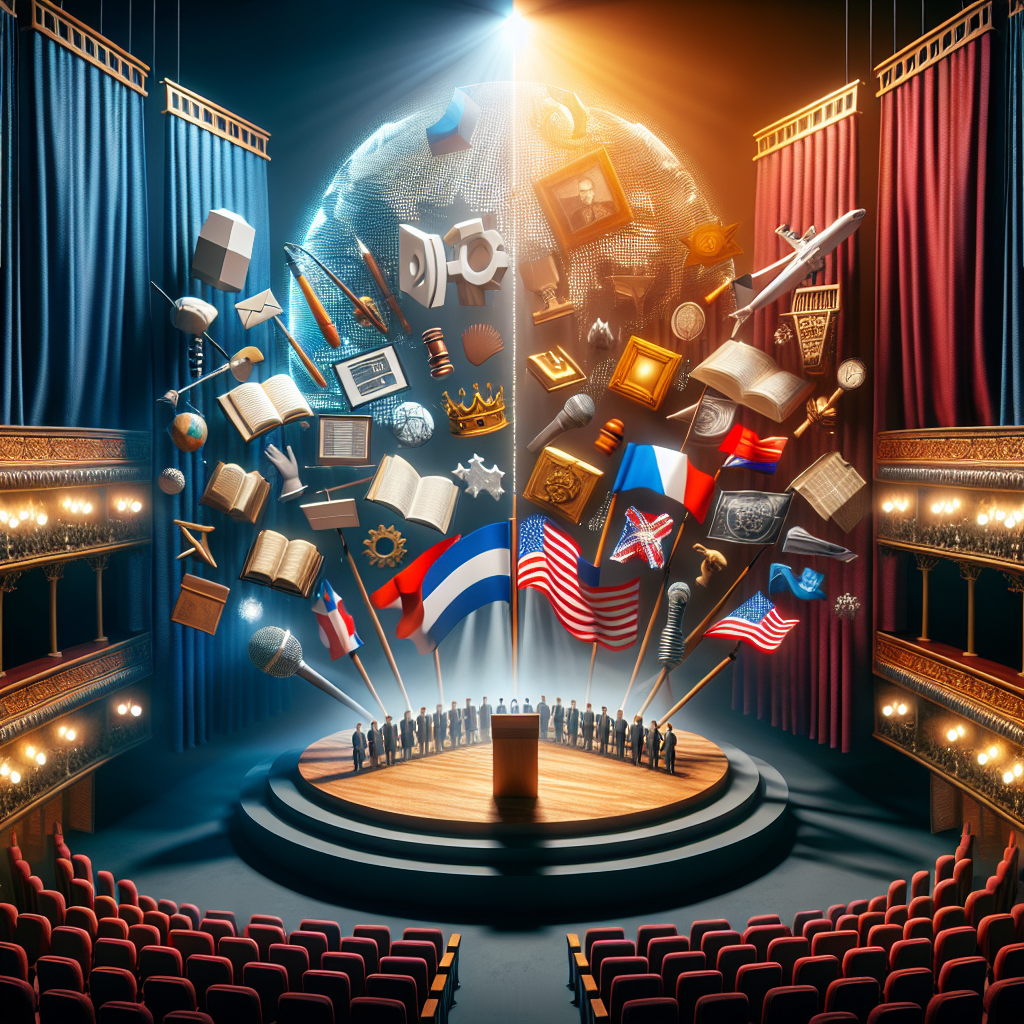The Grand Illusion of Political Theatre: A Deep Dive into the Heart of Governance Facades
In an era where reality often intertwines with spectacle, the political arena has seemingly morphed into a grand theatre. This stage, with its illustrious history and solemn duties, now plays host to a performance that captivates, bewilders, and often, disappoints its audience. A keen look into the intricate ballet of politics reveals a complex narrative where ambition, illusion, and the quest for a legacy intertwine, creating a spectacle that is both fascinating and disheartening.
The Seduction of the Inner Circle
At the heart of this grand narrative is the human draw towards belonging and recognition. The political sphere, with its corridors of power and whispered secrets, presents an intoxicating lure. The individuals who walk these halls are not just policymakers and public servants but actors in a script that spans generations. The allure of becoming part of the "insider network" is undeniable. It's a realm where social hierarchies and relations dictate the tempo of life, far removed from the mundane existence of the electorate.
The primary ambition of many within this enclave isn't to effect change or sculpt a better tomorrow but to secure a role in the ongoing production. The intoxicating mix of power, prestige, and proximity to the levers of influence serves as a potent draw, overshadowing the purported objective of public service. As the quote from the insightful source suggests, the essence of political life for many isn't about the tangible impact but the ephemeral joys of being in the spotlight.
The Theatre of Governance
One cannot discuss the theatrics of politics without mentioning the ultimate stage: the cabinet and its crown jewel, Number 10. This iconic door is not just an entry to a residence or office but a portal to the zenith of political aspiration. The weekly pilgrimage of ministers to this spot, under the watchful eyes of cameras, symbolizes the apex of political achievement in the public eye.
However, what unfolds behind the fabled door is a far cry from the decisive governance one might expect. The cabinet meetings, though high in drama, are often low in substance. Scripted dialogues and choreographed exchanges reduce these gatherings to mere performances. The real governance, as it often happens, is conducted in less glamorous settings, away from the limelight, by individuals whose names seldom make the headlines.
The Quest for a Legacy
The pursuit of a legacy is a potent motivator, driving individuals to endure the grind of political life. However, the source eloquently highlights the irony of this pursuit. Many, after decades of service, find themselves relegated to mere footnotes in history, if they're remembered at all. This reality presents a profound paradox. The quest that consumes their best years often leaves no tangible mark on the fabric of history or the lives of the citizens they serve.
This pursuit of legacy, coupled with the allure of being part of the "inside," perpetuates a cycle where the appearance of action supersedes its substance. The perception of power, it seems, is an end in itself, overshadowing the transformative potential inherent in true governance.
The Audience’s Role
The grand theatre of politics is incomplete without its audience—the public. This audience, with its hopes, dreams, and expectations, watches the spectacle unfold, often mistaking the performance for genuine governance. This misunderstanding is, perhaps, one of the most significant tragedies of the modern political narrative. The electorate's hunger for change and progress is often met with promises and performances that shimmer with potential but falter in delivery.
It's crucial, then, for the audience to discern the performance from the action, to question the narratives presented, and demand accountability not just in words but in tangible outcomes. The spectacle, as captivating as it might be, should not distract from the quest for genuine progress and reform.
Conclusion: Beyond the Curtain
As the curtain falls on each political era, the players exit the stage, leaving behind a legacy that is often as ephemeral as the performances they gave. The grand illusion of political theatre, with all its drama, ambition, and spectacle, serves as a mirror to our collective desires and disillusionments. It's a reminder of the complex interplay between power, perception, and the eternal human quest for belonging and recognition.
To truly transform this narrative, both the actors and the audience must strive for a new paradigm—one where substance trumps spectacle, and governance is measured not by appearances but by its impact on the lives of the governed. Only then can the grand theatre of politics evolve from an illusionary spectacle to a beacon of genuine progress and hope.
For further reading on the dynamics of political theatrics and its impact on governance, the following resources offer valuable insights:
- The New Yorker provides in-depth analyses and articles on the intersection of politics and society.
- The Economist offers global perspectives on political developments and their implications for governance and policy.
In the quest to understand the grand theatre of politics, these resources can provide the audience with the tools needed to discern the performance from the act, fostering a more engaged and informed electorate.
Related News
- Navigating the Chaotic Waves of Governance and Geopolitics: Inside the Decision-Making Vortex
- The Struggles of Political Change: Policy vs. Ambition
- The Conspiracy of Distraction in Modern Governance
- Navigating the Labyrinth: A Sardonic Analysis of Government Dysfunction
- The Dynamics of Tech and Politics: Navigating Partnerships and Progress
